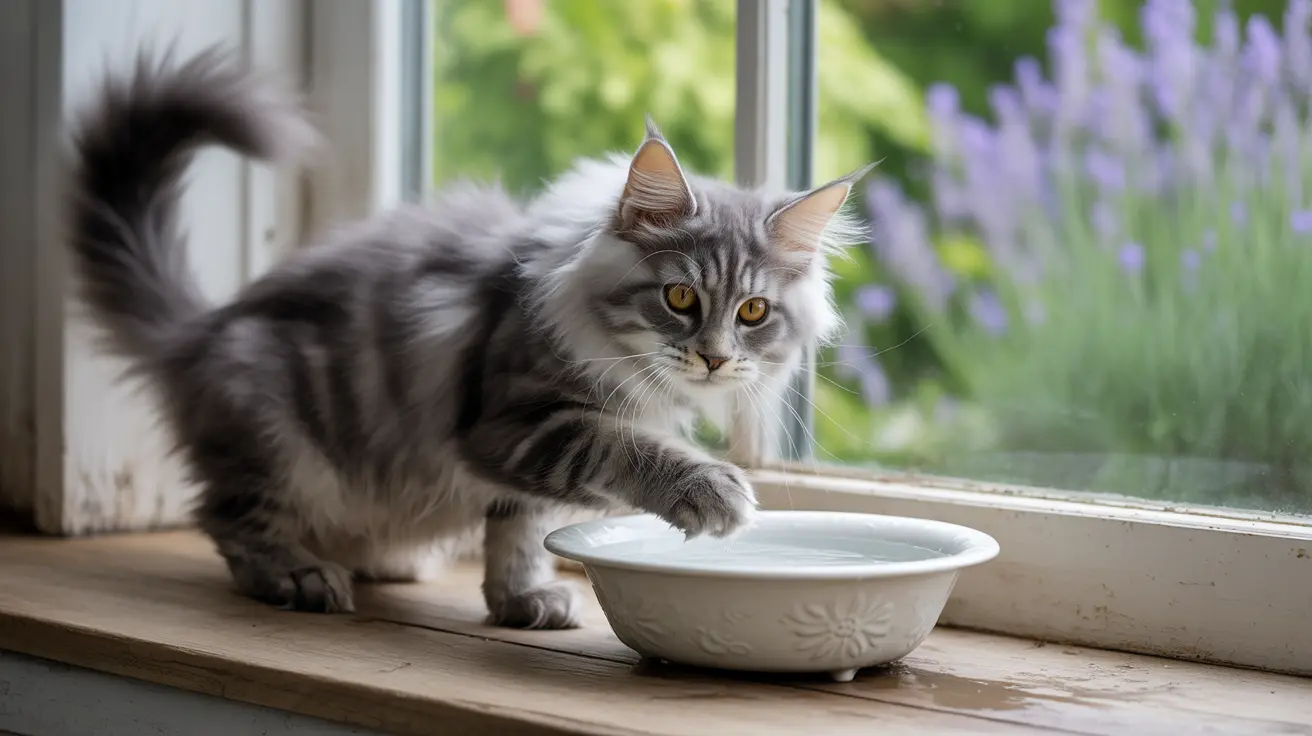The Evolutionary Background of Cats' Water Aversion
Unlike many other animals, domestic cats evolved from ancestors that inhabited arid regions of Africa and the Near East. These wild cats rarely encountered large bodies of water, which means they never developed the necessary adaptations for regular swimming or water interaction.
This evolutionary history has left modern house cats with physical characteristics that make water encounters uncomfortable. Their fur lacks the dense, water-resistant properties found in water-loving animals like otters or even some dog breeds.
Physical Reasons Behind Water Avoidance
Fur Structure and Maintenance
A cat's fur is designed to trap air for insulation, making it highly effective at temperature regulation. When wet, this fur becomes heavy and loses its insulating properties, leaving cats feeling cold and uncomfortable. Additionally, wet fur takes considerable time to dry, which can leave cats feeling vulnerable and less agile.
Sensory Sensitivities
Cats possess extremely sensitive whiskers and fur that help them navigate their environment. Water can overwhelm these sensory tools, creating discomfort and disorientation. Furthermore, their acute sense of smell means they may be particularly sensitive to chemicals in tap water, adding another layer of aversion.
Behavioral and Psychological Factors
Natural Grooming Habits
Cats are meticulous self-groomers, spending up to 50% of their waking hours maintaining their coat. Water disrupts their natural oils and carefully maintained scent profile, which can cause significant stress and anxiety.
Early Experiences Matter
A cat's relationship with water often depends on their early life experiences. Kittens exposed to positive water experiences may develop more tolerance, while negative encounters can cement a lifelong aversion.
Exceptions to the Rule: Water-Loving Cats
Not all cats share this typical water aversion. Some breeds, particularly the Turkish Van, Maine Coon, and Bengal cats, show a natural affinity for water. These breeds often have more water-resistant fur and may actively seek out water play.
Notable Water-Friendly Breeds:
- Turkish Van ("The Swimming Cat")
- Maine Coon
- Bengal
- Norwegian Forest Cat
Best Practices for Cat Bathing
When bathing is necessary, creating a calm, controlled environment is crucial. Use lukewarm water, cat-specific shampoo, and maintain a gentle approach. Some cats may prefer spot cleaning with a damp cloth rather than full immersion.
Frequently Asked Questions
Why do most cats dislike getting their fur wet?
Cats dislike wet fur because it becomes heavy, loses insulating properties, and takes a long time to dry. This leaves them feeling vulnerable and uncomfortable, potentially compromising their ability to move quickly if needed.
Can a cat's breed affect how much they tolerate or enjoy water?
Yes, certain breeds like the Turkish Van and Maine Coon are more likely to enjoy water due to their water-resistant fur coats and genetic predispositions. These breeds often show less aversion to water compared to typical domestic cats.
How does a cat's evolutionary history explain their aversion to water?
Cats evolved from desert-dwelling ancestors who rarely encountered large bodies of water. As a result, they never developed the physical adaptations or behavioral patterns necessary for regular water interaction.
What are the safest ways to bathe a cat without causing stress?
Use lukewarm water, cat-specific shampoo, and create a calm environment. Start slowly, use positive reinforcement, and consider alternatives like spot cleaning when possible. Always have grip mats and support your cat's body throughout the process.
Why are cats fascinated by running water but avoid full-body immersion?
Cats are often attracted to running water because it's naturally more oxygenated and the movement triggers their hunting instincts. However, this curiosity doesn't typically extend to full-body immersion, which they perceive as potentially threatening.
Understanding why cats hate water helps us better respect their natural instincts while finding ways to make necessary water interactions less stressful for our feline friends. While most cats may never become water enthusiasts, with patience and proper technique, we can help them tolerate necessary encounters with water when needed.






